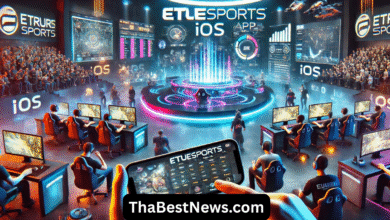Gimkit Host has emerged as one of the most popular educational tools in recent years, offering an engaging and interactive platform for learning. At the heart of its functionality lies the role of the Gimkit host, a position that holds significant importance in shaping the learning experience. Whether you are an educator looking to use Gimkit for your classroom, a student curious about the platform, or simply someone intrigued by educational technology, understanding what a Gimkit host is and how it works is essential.
What is Gimkit?
Before diving into the role of a Gimkit host, it is important to understand the platform itself. Gimkit is a game-based learning tool designed to make studying and revision more engaging through interactive quizzes. Unlike traditional quizzes, Gimkit incorporates elements of strategy and gamification, allowing students to earn in-game currency that they can use to purchase upgrades and power-ups during gameplay. This blend of learning and play helps keep students motivated and involved in the educational process.
The platform was created by a high school student named Josh Feinsilber, who designed it with the intent to offer a more dynamic and enjoyable learning experience. Since its inception, Gimkit has grown rapidly and become widely used in classrooms around the world. The platform’s ease of use and flexibility make it an attractive choice for teachers, tutors, and even parents.
The Role of a Gimkit Host
The Gimkit host is essentially the person who controls and manages a Gimkit session. This individual is typically the teacher or facilitator who initiates the game, selects the quiz content, and guides the participants through the activity. Being a Gimkit host means having the authority to customize the experience, monitor progress, and adjust settings according to the needs of the group.
When a host starts a Gimkit game, they set up the session by choosing a kit—this could be a pre-made quiz or one created by the host themselves. The host then generates a unique game code that participants use to join the session. From there, the host controls the pacing of the game, can pause or end the session, and has access to analytics that show how participants are performing.
The host’s role is crucial because their decisions can greatly impact how effective the session is. For example, choosing the right questions, managing the time, and encouraging participation can all contribute to a successful learning outcome. The host also serves as a motivator and guide, helping to maintain energy and focus during the game.
How to Become a Gimkit Host
Becoming a Gimkit host is straightforward. The platform is designed to be user-friendly, allowing educators with varying levels of technical skill to get started quickly. To become a host, one simply needs to create a Gimkit account and log in. After logging in, the user can select or create a kit, then start a new game session.
Once the session is live, the host shares the game code with participants, who join using their devices. The host monitors the game in real-time, viewing scores and participation metrics. The intuitive interface makes it easy for hosts to manage the session without requiring extensive training or preparation.
For those new to Gimkit, there are numerous tutorials and resources available that explain the features and best practices for hosting. Additionally, experimenting with the platform in a low-stakes environment, such as a practice session, can build confidence before using it in an actual classroom or meeting.
Features Available to the Gimkit Host
The Gimkit host has access to several features that enhance the learning experience. These tools allow the host to customize the session to suit different learning styles and objectives.
One of the key features is the ability to control the game’s flow. The host can decide when to start and stop the game, as well as when to introduce new questions or rounds. This flexibility helps keep the session dynamic and responsive to participant engagement.
Another important feature is the analytics dashboard. This tool provides the host with real-time insights into how participants are answering questions, which can help identify areas where learners may be struggling. By reviewing these metrics, the host can tailor follow-up instruction or modify the quiz content for future sessions.
The host can also adjust settings such as the amount of time allowed per question and whether participants can see correct answers immediately. These options enable hosts to create an environment that best supports the learning goals.
Additionally, the host can encourage collaboration or competition, depending on the group dynamic. For instance, they can choose to have participants work individually or in teams, which can foster teamwork or friendly rivalry.
Benefits of Hosting a Gimkit Session
Hosting a Gimkit session offers numerous advantages, especially in educational contexts. The interactive nature of the platform engages students in ways that traditional teaching methods sometimes struggle to achieve.
One major benefit is increased student motivation. The gamified elements of Gimkit—earning virtual currency, upgrading abilities, and competing with peers—encourage active participation. This active involvement helps students retain information more effectively and makes learning enjoyable.
The host’s ability to customize questions ensures that the content aligns with the curriculum and the specific needs of the learners. This personalization enhances the relevance of the material, making it more meaningful to students.
Hosting also allows educators to collect valuable data on student performance. By analyzing this data, hosts can identify knowledge gaps and tailor their teaching strategies accordingly. This data-driven approach supports differentiated instruction, helping each student progress at their own pace.
Furthermore, Gimkit sessions promote a sense of community and interaction. Hosting a game creates a shared experience that encourages collaboration and communication among participants.
Challenges Faced by Gimkit Hosts
While hosting Gimkit sessions is generally straightforward, there are some challenges that hosts might encounter. Technical issues, such as connectivity problems or device incompatibility, can disrupt the flow of the game. It is important for hosts to be prepared for such situations and have contingency plans in place.
Another challenge is maintaining participant engagement throughout the session. Even with gamification, some students may lose focus or become distracted. The host must actively manage the session, using enthusiasm and pacing to keep energy levels high.
Creating balanced and appropriately challenging questions can also be difficult. Questions that are too easy may bore participants, while overly difficult questions might discourage them. The host must find a middle ground that motivates without overwhelming.
Lastly, managing a large group can be challenging. With many participants, it can be harder to monitor individual progress and provide personalized feedback. Hosts need to be adept at using the platform’s tools to manage these dynamics effectively.
Tips for Effective Gimkit Hosting
To be an effective Gimkit host, it is helpful to approach the session with careful planning and an understanding of the platform’s features. First, selecting or creating kits that are well-aligned with the learning objectives is crucial. This ensures that the content is both relevant and challenging.
The host should familiarize themselves with the game mechanics before the session. Understanding how upgrades, power-ups, and the economy work will help the host explain the game to participants and manage the session smoothly.
During the session, the host should monitor engagement closely and be ready to adjust the pace. Pausing the game to address questions or clarify instructions can maintain participant focus.
Encouraging a positive and supportive atmosphere is also important. Hosts should acknowledge effort and celebrate progress, creating an environment where learners feel comfortable and motivated.
Finally, hosts should use the analytics provided by Gimkit to reflect on the session’s effectiveness. Reviewing participant responses and scores can guide future instruction and improve subsequent sessions.
The Impact of Gimkit Hosting on Learning
Hosting Gimkit sessions has a positive impact on the learning experience. The interactive and engaging nature of the platform transforms passive learning into an active process. When learners participate in a game hosted by an effective facilitator, they tend to retain information better and develop a deeper understanding of the material.
The host’s role in guiding and managing the session contributes significantly to this impact. By creating a structured yet flexible learning environment, the host enables participants to engage with content in a way that suits their individual needs.
Moreover, the competitive and collaborative elements introduced by the host help develop important skills beyond academic knowledge. Communication, teamwork, critical thinking, and time management are all fostered during a well-hosted Gimkit game.
In addition, the feedback loop created by the host’s use of analytics promotes continuous improvement. Both the educator and the students benefit from insights gained during the session, which inform future learning strategies.
Gimkit Hosting Beyond the Classroom
While Gimkit is primarily known as an educational tool for schools, the role of the host extends beyond traditional classrooms. Many organizations and groups have adopted Gimkit for training sessions, workshops, and team-building activities.
In corporate environments, a Gimkit host might facilitate quizzes designed to reinforce product knowledge or company policies. The gamified nature of the platform can make training more enjoyable and memorable for employees.
Similarly, clubs, community groups, and even families use Gimkit sessions to make learning fun and interactive. The host in these contexts adapts the quiz content to fit the audience, whether it’s language learning, trivia, or any other topic of interest.
This versatility makes the role of the Gimkit host both valuable and adaptable across different settings.
The Future of Gimkit Hosting
As educational technology continues to evolve, the role of the Gimkit host is likely to grow in importance. Advances in features, such as AI-driven question generation, enhanced analytics, and improved collaboration tools, will empower hosts to deliver even more personalized and effective sessions.
Moreover, the increasing integration of remote learning and hybrid classrooms highlights the need for skilled hosts who can manage virtual engagement. Gimkit’s platform is well-positioned to support this trend, making the host’s role critical in facilitating learning regardless of location.
Training and professional development for hosts will also become more common, as schools and organizations recognize the value of well-facilitated game-based learning.
In essence, the future points to a growing reliance on knowledgeable hosts to unlock the full potential of platforms like Gimkit.
Frequently Asked Questions (FAQs) About Gimkit Host
What is a Gimkit host?
A Gimkit host is the person who creates, manages, and controls a Gimkit game session. This individual selects the quiz content, starts the game, monitors participation, and guides the players throughout the session.
Can anyone be a Gimkit host?
Yes, anyone with a Gimkit account can become a host. Teachers, tutors, parents, or group leaders can all host a Gimkit session by logging into the platform, selecting or creating a quiz, and starting a game.
Do I need special training to be a Gimkit host?
No special training is required. The platform is designed to be intuitive and user-friendly. However, exploring tutorials and practicing beforehand can help hosts become more comfortable with the features.
What features can a Gimkit host control during a session?
Hosts can control game pacing, question order, time limits, visibility of answers, and manage participant teams. They also have access to real-time analytics and can pause or end the game at any time.
How does hosting a Gimkit session benefit students?
Hosting a session increases student engagement through gamification, promotes active participation, allows for personalized content, and provides data that can help tailor instruction to student needs.
Can Gimkit hosting be used outside of classrooms?
Yes, Gimkit hosting is versatile and can be used in corporate training, workshops, clubs, and family activities. Hosts can customize the content to Gimkit Host suit any audience or learning objective.
What challenges might a Gimkit host face?
Challenges include managing technical issues, keeping participants engaged, creating balanced questions, and handling large groups effectively.
How can I improve as a Gimkit host?
Planning your quiz content, understanding game mechanics, monitoring engagement, fostering a positive atmosphere, and reviewing analytics after sessions are key ways to improve your hosting skills.
Is Gimkit free to use for hosts?
Gimkit offers both free and paid plans. Hosts can start with free features but may opt for premium plans to access advanced functionalities and more content Gimkit Host options.
Can participants play Gimkit games without the host?
Participants need the host to create and start the game session. Without a host, the game cannot begin, as the host controls the session flow and content.




